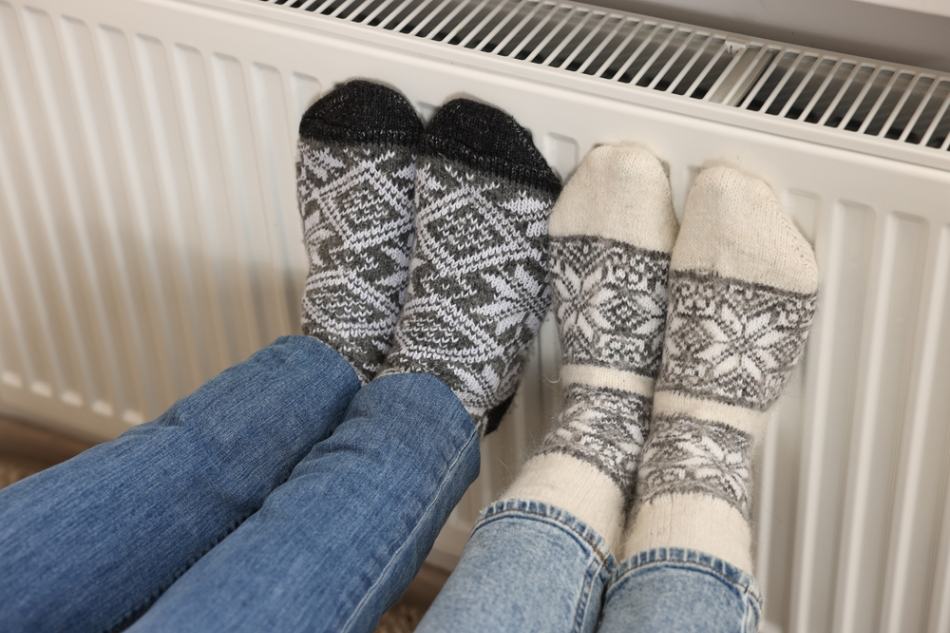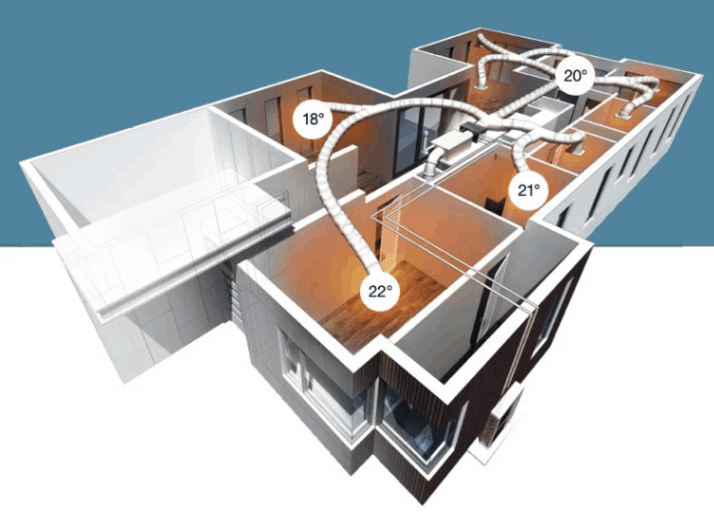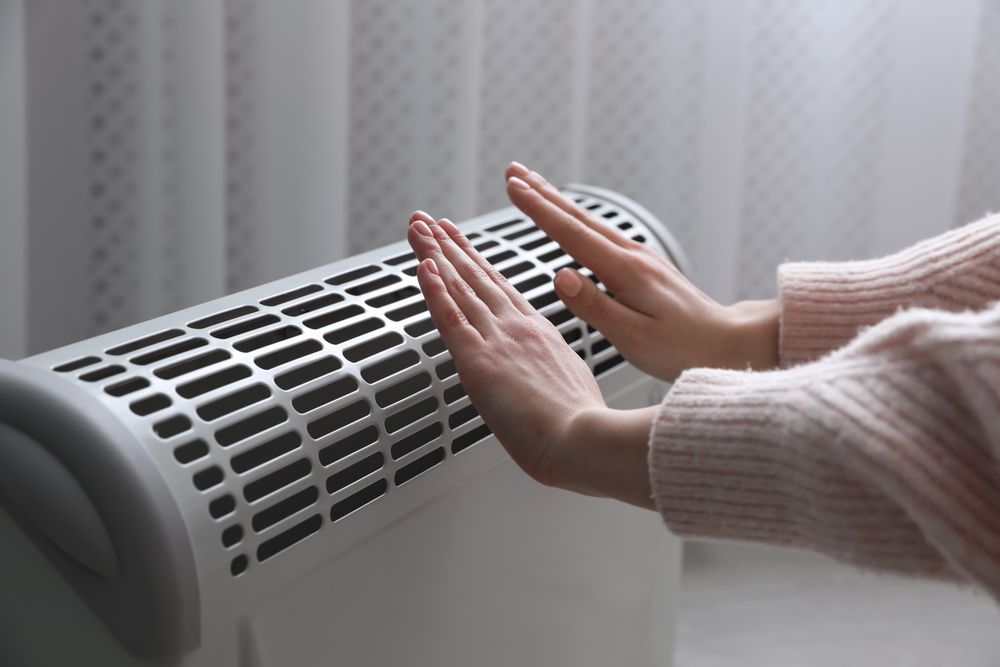
When winter arrives and you’re reaching for the thermostat, the last thing you want to worry about is whether you’ve chosen the right heating system for your home. With energy costs rising and environmental concerns growing, Australian homeowners are increasingly asking: Should I stick with gas ducted heating or make the switch to electric?
It’s a fair question. After all, your heating system isn’t just about staying warm—it’s about managing your energy bills, reducing your environmental impact, and ensuring your family’s comfort for years to come.
The decision becomes even more complex when you consider that Victoria recently introduced new regulations affecting gas heating in homes.
Let’s break down everything you need to know about ducted gas heating versus electric heating, so you can make an informed choice that suits your home, budget, and lifestyle.

Ducted gas heating has been the go-to choice for many Australian homes, particularly in Victoria, where nearly 80% of households are connected to the gas network.
The system works by drawing air from inside your home, heating it in a gas furnace, and then distributing that warm air through a network of ducts to outlets in different rooms.
Gas heating systems are known for their ability to heat your home quickly and efficiently. When you crank up the thermostat on a cold winter morning, you’ll notice the warmth spreading through your home faster than many other heating options.
This rapid heat generation is particularly valuable during those unexpectedly chilly Melbourne mornings.
Gas ducted heating is generally less expensive to install, with an average cost of $3000 to $7000, making it an attractive option for homeowners looking at upfront costs. Many homes already have existing gas connections and infrastructure, which can simplify the installation process considerably.
One of the standout features of modern gas ducted systems is their zoning capability. You can choose to heat only the areas you’re using, which helps manage energy consumption and costs. Some systems even allow different zones to be controlled by separate thermostats, giving you precise control over your home’s temperature.
However, gas heating isn’t without its challenges.
The air circulation fans consume a fair bit of electricity, which means your electricity bill will still see an increase during the winter months, even though you’re primarily using gas for heating.
Safety is another consideration. Gas heating systems require proper ventilation and regular maintenance for safe operation. Poorly maintained systems can pose health risks, including the potential for carbon monoxide emissions, which is why regular servicing is essential.
From a running cost perspective, while gas has traditionally been cheaper than electricity, for unzoned gas ducted heating, a 3-star energy rating has an annual energy cost of $1,704—a 4-star costs $1,528, and a 6-star costs $1,347 for the year. These costs can add up, especially during extended winter periods.
Are you in search of ducted gas heating in Mitcham, Lalor, or Surrey Hills? Our services are the perfect choice for heating larger homes, offices, and even industrial establishments.. We proudly bring over two decades of hands-on and practical knowledge and experience to every project we undertake in Mitcham.

Electric ducted heating systems, particularly reverse cycle ducted systems, are gaining significant traction among Australian homeowners. These systems offer both heating and cooling capabilities, making them a year-round solution for home comfort.
The most compelling advantage of electric ducted systems is their dual functionality.
Instead of needing separate heating and cooling systems, a reverse cycle ducted system handles both. This means you’re getting more value from a single installation, and you only have one system to maintain and service.
Reverse cycle air conditioning systems can achieve up to 300% efficiency, producing far more energy as heat than is consumed during operation. This remarkable efficiency comes from the system’s ability to extract heat from outside air, even in cold conditions, rather than generating heat from scratch.
Installation is often simpler and more flexible. Electric ducted heating systems generally have lower upfront costs compared to gas alternatives. They require fewer components, eliminating the need for gas connections, exhaust systems, or ventilation, resulting in a more budget-friendly option.
From an environmental perspective, electric systems have a clear advantage. Electric ducted heating systems produce zero emissions during operation, reducing the impact on the environment. Additionally, they eliminate the risks associated with combustion byproducts, such as carbon monoxide, offering peace of mind in terms of safety.
Reverse cycle ducted electric heating and cooling averages around $6000 to $12,000 for installation, which is higher than gas systems upfront. However, the long-term cost picture tells a different story.
The efficiency of modern electric systems means they often cost less to run than gas heating, especially when you consider that electricity prices in Victoria are projected to decrease. The AEMC projects a 9% decrease in wholesale electricity prices in Victoria over the next decade (2025 data), driven by the state’s increasing renewable energy capacity.
When comparing costs, it’s crucial to look beyond just the purchase price and consider the total cost of ownership over the system’s lifetime.
Gas heating wins on upfront installation costs if you already have gas connections. However, if your home doesn’t have existing gas infrastructure, the cost advantage quickly disappears when you factor in connection fees and infrastructure requirements.
Electric systems may cost more initially, but they often require less complex installation and don’t need additional ventilation or gas line work.
Here’s where things get interesting. While gas has traditionally been cheaper per unit of energy, several factors are changing this equation. Gas prices have been rising steadily, and electric reverse-cycle air conditioners (also called heat pumps) are more efficient and cheaper to run than gas ducted and gas room heaters.
The efficiency advantage of reverse cycle systems means they can deliver the same amount of heating for significantly less energy consumption. When you add solar panels to the equation, electric heating becomes even more attractive financially.
Going all-electric puts around $880 per year back in the pockets of new homeowners, or approximately $1,820 per year with solar installed, while converting an existing home with solar panels from gas to electricity can save around $2,000 a year on energy bills.
These savings compound over time, often making electric systems the more economical choice despite higher upfront costs.
The heating landscape in Australia, particularly in Victoria, is undergoing significant changes that could affect your decision.
The Victorian government banned natural gas connections in all new homes that require a planning permit in the state from 1 January 2024. This means if you’re building a new home, you may not have the choice to install gas heating.
For existing homes, Victorian households will, from May 2027, be required to replace end-of-life gas hot water systems with heat pumps or other efficient alternatives. While this initially applies to hot water systems, the trend clearly indicates a move away from gas appliances.
These regulatory changes aren’t just about environmental goals—they’re also driven by energy security and cost considerations. The Victorian Government is proposing that all gas heating be switched to electric at the end of its life and aims to reduce emissions by 75-80% by 2035.
This means if you install a new gas heating system today, you might find yourself needing to replace it with an electric system sooner than you’d planned.
Searching for ducted heating in Camberwell or surrounding areas? By choosing Absolute Airflow, you’re also backed by generous warranties and our permanently guaranteed workmanship.
Both systems can effectively heat your home, but they do so differently, which affects comfort and performance.
Gas heating provides rapid, intense heat that quickly warms spaces. This makes it excellent for quickly taking the chill off a cold morning. However, gas systems only heat—they don’t provide cooling, so you’ll need separate air conditioning for summer comfort.
Electric reverse cycle systems heat more gradually but provide more consistent temperatures throughout your home. The added benefit of cooling means you get year-round comfort from a single system. Modern electric systems also offer precise temperature control and can be more responsive to thermostat adjustments.
Zoning is available with both systems, allowing you to heat only the areas you’re using. However, electric systems often offer more sophisticated zoning options and smart home integration capabilities.
Searching for ducted heating in Bulleen or Bundoora, or another corner of Melbourne? Your search ends at Absolute Airflow! We are the go-to team for all things ducted heating. Installation? Servicing? Repairs? We’ll handle it all.
Gas heating systems require regular maintenance for safe operation. This includes annual servicing to check for gas leaks, ensure proper ventilation, and maintain efficiency. The system’s components, including the gas furnace and ductwork, typically need attention from qualified technicians.
Electric systems generally require less maintenance. There are no gas connections to worry about, no combustion byproducts to manage, and fewer safety concerns. Regular filter changes and periodic system checks are usually sufficient to keep electric systems running efficiently.
Both systems can last 15-20 years with proper maintenance, but electric systems often have fewer components that can fail, potentially resulting in lower maintenance costs over time.
So, which system is right for your home? The answer depends on several key factors.
Choose gas ducted heating if you already have gas infrastructure, are looking for lower upfront costs, and need rapid heating performance. Gas might also make sense if you’re in an area where gas prices remain competitive and you’re not planning to add solar panels.
Choose electric ducted heating if you want a system that provides both heating and cooling, are concerned about environmental impact, plan to install solar panels, or want to future-proof your home against changing regulations. Electric is also the better choice if you’re building new or don’t have existing gas connections.
Consider your long-term plans too. If you’re planning to stay in your home for many years, the superior efficiency and lower running costs of electric systems often outweigh the higher upfront investment.
The good news is that various government programs can help offset the costs of upgrading your heating system.
Currently, the Victorian Government is encouraging homeowners to upgrade their gas heating to electric via a rebate through the Victorian Energy Upgrade program (VEU). These rebates can significantly reduce the cost of switching to electric heating.
To claim the VEU rebate, the new ducted system must be classed as a premium system. (High efficiency units only) This ensures that rebated systems deliver maximum efficiency and cost savings.
Solar Victoria also offers rebates for solar panel installations, which complement electric heating systems perfectly. When combined, these incentives can make electric heating systems very cost-competitive with gas alternatives.
The heating landscape is evolving rapidly, and electric ducted systems are increasingly becoming the smart choice for Australian homeowners.
While gas heating has served us well in the past, the combination of improving electric technology, falling electricity prices, rising gas costs, and changing regulations is tipping the scales toward electric solutions.
Electric reverse cycle ducted systems offer superior efficiency, dual heating and cooling functionality, lower environmental impact, and often better long-term cost savings. When you factor in available government rebates and the potential for solar integration, electric heating becomes even more attractive.
At Absolute Airflow, we understand that every home is different, and we’re here to help you navigate these important choices.
Our experienced team can assess your home’s specific needs, explain your options in detail, and provide honest recommendations based on your situation and goals. We’ll help you understand the true costs and benefits of each system, including available rebates and incentives.
Contact us today for a free consultation and quote. Our experts will visit your home, assess your current setup, and provide tailored recommendations that suit your needs and budget.

© Copyright 2025 - Absolute Airflow - All Rights Reserved